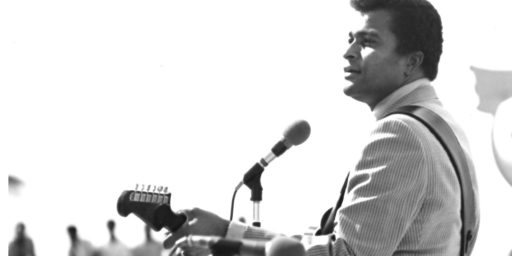SOLDIERS, WHINING, AND THE PRESS
There have been a few interesting reactions about the US soldiers who complained about having to stay in Iraq to ABC TV cameras.
Today, there are two very different takes from two writers I’ve followed for years, Ralph Peters and William F. Buckley, Jr. both veterans from two different generations.
Both men agree that it’s not hard to find soldiers with a gripe. Buckley puts it in his standard flowery prose,
What this soldier said was that he wanted to go home, that he could no longer trust the word of the military, that he wasn’t sure the whole operation wasn’t a bad idea, that he had no good feelings left for the Iraqis, given how badly they were reacting to the G.I.s.
What would you expect him to say?
Well, in fact, one would have hoped for something different, but that may be a counsel of perfection. Wallace Beery or Douglas Fairbanks or Errol Flynn might have said to the reporter, “Arsehole! You think it’s fun here? Why are you asking dumb questions? If you mean, will we stay on as long as we’re needed, why yes, and God bless the Queen!”
Peters puts it slightly saltier:
SOLDIERS complain. God knows, I did when I was a private. Fighting men have been bitching since the first semi-organized bands of cave-dwelling warriors went at each other with sticks, rocks and beer bottles.
Peters unfortunately, then uses the opportunity to have another whack at Don Rumsfeld and Company:
Our troops are doing a magnificent job in a miserable environment–despite the lack of support from Pentagon civilians who never paid any dues except to their country clubs. The Rummycrats who insisted we could occupy Iraq with two Boy Scout troops and a repainted pickup truck would not listen to any common-sense warnings from those in uniform, or in the intelligence agencies, or in the State Department, or anywhere else.
Buckley, characteristically, focuses on personal responsibility and leadership:
The First Amendment does not apply in the military. A court martial could be summoned, but won’t be–to do so would only attract Peter’s notice, and bring more attention to the episode. The offending soldiers will be reprimanded, which will give them something more to gripe about.
Perhaps they will be taken to one side and spoken to, by their company commander, or, who knows, maybe even the general. He might begin by saying to them: Have you got any idea of something called pride? Pride is what kept the Mayflower people from giving up and sailing back to England. It’s what gave the early Americans the steel to face their own Iraqs–Indians and freezing weather and hunger and pain and loneliness. There was something there that made them stick it out. And they hoped, those who wrote home and sang songs and wrote poetry, that in doing so they would endow a tradition, served by American soldiers for three centuries, in jungles and swamps and deserts (yes, deserts), where many of them lived and died not for four months but sometimes for years.
“And they,” the company commander might conclude, “were draftees. We are volunteers. We said we’d do the work, go where we were told to go, fight who we were told to fight, accept the orders we got, and do this without griping to Peter Jennings.
“Any questions?”
Questions would be unlikely.
Heh.
Somehow, I prefer WFB’s approach to the situation.
Update (22:09) — This also brings to mind a bit of dialogue from Saving Private Ryan:
Miller-I don’t gripe to you Reiben. I’m a captain. There’s a chain of command. The gripes go up, not down. Always up. You gripe to me, I gripe to my superior officer so on, so on, so on. I don’t gripe to you. I don’t gripe in front of you. You should know that, you’re the ranger.
Reiben-Well sorry sir, but ah let’s say you weren’t a captain or maybe I was a major. What would you say then?
Miller-Well in that case, I say this is an excellent mission sir, with an extremely valuable objective sir, worthy of my best efforts sir. Moreover I feel heart felt sorrow for the mother of private James Ryan and am willing to lay down my life and the lives of my men, especially you Reiben, to ease her suffering.




